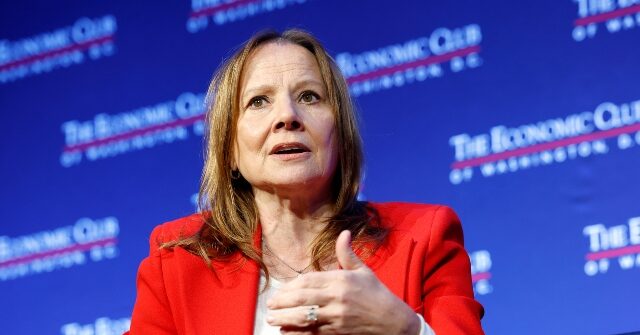GM Defies Trump with Plan to Import Chinese EV Batteries

General Motors plans to import batteries from China’s Contemporary Amperex Technology (CATL) for its second-generation Chevrolet Bolt electric vehicle, despite the high tariffs imposed by the Trump administration.
The Wall Street Journal reports that General Motors has announced that it will source batteries for its upcoming second-generation Chevrolet Bolt electric vehicle from China’s Contemporary Amperex Technology (CATL). This decision comes despite the steep tariffs imposed by the Trump administration on Chinese imports, which currently stand at around 80 percent for EV batteries.
GM’s decision to import batteries from CATL is a temporary measure until the automaker and its Korean partner, LG Energy Solution, can ramp up their own manufacturing of lower-cost lithium iron phosphate (LFP) batteries in the United States. The new Bolt is scheduled to begin production at GM’s Fairfax Assembly Plant in Kansas later this year and is expected to reach dealerships in 2026 as the company’s most affordable electric vehicle.
The automaker’s spokesperson stated that this arrangement is a stopgap measure to stay competitive while GM works on manufacturing its own LFP batteries domestically. The spokesperson also emphasized that all 12 EVs currently sold by GM feature U.S.-made batteries.
The high tariffs on Chinese EV batteries, a result of President Trump’s trade war with China, will significantly impact GM’s profit margins on the new Bolt. However, the recent elimination of the $7,500 federal tax credit for EVs makes GM’s strategy more feasible, as the Bolt will no longer face a significant disadvantage compared to other electric vehicles in the market.
LFP batteries are approximately 35 percent cheaper to produce than their nickel- and cobalt-based counterparts, according to Sam Abuelsamid of Telemetry, an automotive research and advisory firm. This cost advantage, combined with other cost-cutting measures GM has implemented in its EVs, may allow the new Bolt with Chinese batteries to be marginally profitable or close to breaking even.
GM’s decision to import batteries from China highlights the ongoing challenges faced by U.S. automakers and battery manufacturers in catching up with China’s expertise in producing lower-cost batteries. Chinese manufacturers like CATL and BYD have a significant lead in LFP battery technology, which was invented in the U.S. but commercialized in China.
Other U.S. automakers, such as Ford, are also leveraging Chinese expertise in LFP batteries. Ford is currently licensing CATL’s technology and manufacturing process to produce cheaper EV batteries at a factory under construction in Michigan.
GM’s original EV battery strategy focused on a modular approach, with all models sharing the same batteries made from a higher-cost chemistry. However, under the leadership of Tesla veteran Kurt Kelty, who joined GM in 2024 to lead battery development, the automaker is now adopting a wider range of battery options, including LFP.
The new Bolt is expected to retail for around $30,000, making it GM’s most affordable electric vehicle. Although GM board member Jon McNeill previously stated that the vehicle would sell in the low-$20,000s after the current $7,500 federal tax credit, the credit will be eliminated before the new model arrives on the market.
Read more at the Wall Street Journal here.
Lucas Nolan is a reporter for Breitbart News covering issues of free speech and online censorship.